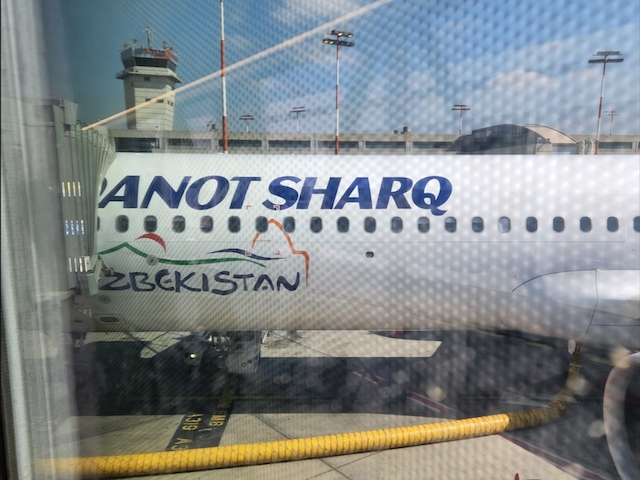In a significant development that underscores the deepening of diplomatic and commercial ties between Israel and Uzbekistan, a newly amended Air Transport Agreement was signed on Wednesday. Minister of Transportation and Road Safety Miri Regev and Uzbekistan's Ambassador to Israel, Feruza Makhmudova, inked the updated protocol that stands to revolutionize tourism and air travel between the two nations.
This modification to the original Air Transport Agreement—which was initially agreed upon on July 4, 1994—heralds a promising new era. One of the most transformative aspects of the newly ratified document is the removal of previous restrictions on the number of carriers permitted to operate between both countries. Additionally, the limitations on flight destinations have also been lifted, thereby facilitating a more streamlined and efficient air communication system, as elucidated in an official statement from the Uzbek embassy in Israel.
It's crucial to recognize that this comes after nearly three decades since the inauguration of the original agreement. In those years, the exclusive operator on the Tashkent-Tel Aviv-Tashkent route had been Uzbekistan Airways. However, the aviation landscape saw a pivotal shift this year when Qanot Sharq Airlines commenced a fresh route connecting Samarkand and Tel Aviv.
Uzbekistan and Israel lift restrictions on air travel. https://t.co/Zp4xPcxj4k
— Tashkent Bazaar (@Tashkentbazaar) September 7, 2023
This strategic move has been a long time coming. Only last week, Uzbekistan welcomed an Israeli media delegation, with a special focus on introducing the newly established Samarkand-Tel Aviv route. Samarkand, an ancient city that was once a central hub on the Silk Road, is being marketed as a highly appealing vacation destination for Israeli tourists. Israel Hayom, part of the visiting media delegation, vouched for the impeccable travel experience provided by the newly integrated airport in Samarkand. The paper's endorsement thus positions Uzbekistan as a burgeoning hot-spot for Israeli tourism in Central Asia.
The joint statement issued by the embassy emphasized that this renewed agreement "provides new opportunities for the air markets of the two countries to open promising air routes, attract new airlines, and increase mutual tourist flows." It's noteworthy that in 2012 alone, over 12,000 Israeli citizens had visited Uzbekistan. Furthermore, since 2018, a 30-day visa-free regime has been in place, simplifying travel procedures for Israeli tourists entering Uzbekistan.
To understand the broader context of this amended agreement, one needs to consider the geopolitical implications. Not only does it represent a strengthening of bilateral relations, but it also manifests Israel’s expanding influence in Central Asia, an area traditionally under Russian and Chinese spheres of influence. This agreement allows Israel to project soft power in the region through cultural exchange and tourism, which in the long run could pay substantial diplomatic dividends.
Uzbekistan, Israel sign new deal that lifts limits on flightshttps://t.co/9bHYKoCEnh
— NEWSRAEL - The 24/7 Live FREE News App! (@NewsraelApp) September 7, 2023
The updated Air Transport Agreement between Israel and Uzbekistan is a landmark move that will catalyze tourism and commerce, while also opening doors for future collaborations across various sectors. It reaffirms the commitment of both nations to foster a relationship built on mutual benefits and shared aspirations. Through this pivotal act, Israel and Uzbekistan have showcased the infinite possibilities that can be unlocked when two countries harmonize their efforts towards a more interconnected and cooperative future.


